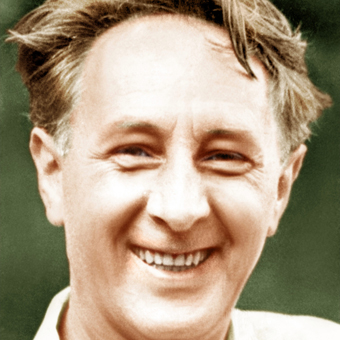
Bohuslav Martinů
d. 28 August 1959, Liestal, Switzerland
Martinu was born on 8 December 1890 in a room at the top of a church tower in Policka, a small town in the Bohemian-Moravian highlands (his cobbler father, Ferdinand, was also a bell-ringer and fire-watcher). Martinu showed early promise as a violinist and was composing when barely into his teens. In 1906 the citizens of Policka collected the funds to send him to the Conservatoire in Prague, but Martinu’s academic career was not a success.
By the age of 20, while earning his living as an orchestral violinist, Martinu was composing prolifically and maintained this productivity for the rest of his life. The first important influence on his music was Claude Debussy, followed by Stravinsky, but soon an individual voice began to emerge, characterised by motoric, insistent rhythmic patterns and a natural, folklike melodiousness.
In 1923 Martinu moved to Paris where he studied with Albert Roussel and, in 1931, married Charlotte Quennechen, whose work as a dressmaker supported him while he continued to compose. Although he now seemed settled in Paris for good, he was becoming more aware of his Czech roots, and Czech themes and Czech authors featured prominently in his music. The threatened German invasion of Czechoslovakia prompted a work of protest, the powerful Double Concerto for two string orchestras, piano and timpani – perhaps the best of the many concerti grossi he composed in the 1930s. With the Nazi invasion of France in 1940 Martinu and his wife fled before the advancing troops, escaping to the United States via Spain and Portugal.
In 1942 Martinu began the first of what were to be six symphonies, the first five written at the rate of one a year – although, of course, he was, as always writing much else besides. A succession of teaching posts gave him some financial security, but a fall from a balcony in 1946 resulted in serious injury and high medical bills, and a temporary interruption in his ability to write music.
Martinu had been considering a return to Czechoslovakia since the end of the Second World War, but the seizure of power by the Communists in 1948 forced him to the reluctant conclusion that he might never see his homeland again. In the early 1950s he again began to spend more time in Europe and moved to Nice in 1953, returning to America two years later to take up a teaching position at the Curtis Institute in Philadelphia; by now he was again composing as prolifically as before his accident. His post at the Curtis Institute lasted only a year: in 1956, eager to be back in Europe, he accepted a teaching post in Rome, at the American Academy of Music, and the following year he gratefully took advantage of a generous offer by the Swiss conductor and maecenas Paul Sacher and moved to Sacher’s estate in Switzerland. There he lived until his death on 28 August 1959.
Bohuslav Martinu is published by Boosey & Hawkes.
This biography can be reproduced free of charge in concert programmes with the following credit: Reprinted by kind permission of Boosey & Hawkes
